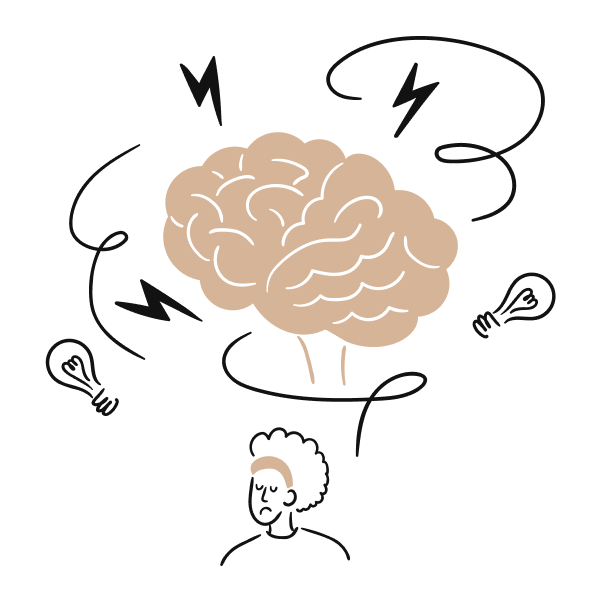Anxiety Disorder is easier to manage if you talk to other people about it. Do you suffer from anxious thoughts that affect your concentration, sleep and social life, for example? Speak to your family, friends or a romantic partner about them. Are you still struggling with feelings of anxiety? Discuss them with a physician or a psychologist.
How to Manage an Anxiety Disorder?
When you’re experiencing feelings of anxiety, remember that they usually go away after 60 to 90 minutes. Try to keep participating in activities as much as possible.
Note: Facing your fears head on isn’t always the best approach. Make sure you’re taking appropriate steps and not pushing yourself too far. Not sure what will work for you? Speak to your physician or a psychologist.
How to Manage an Anxiety Disorder Yourself?
These practical tips are a great place to start:
- Move more
Exercise is wonderful for your mind and body. By exercising more, you’ll find that you have more energy, sleep better and feel in a better mood. Try taking the stairs instead of the elevator, or riding your bike instead of driving. - Get outside
Do you have the option of exercising outside? Combine these first two tips for faster results. Not possible? Getting some fresh air also helps, it’ll take your mind off things. - Eat healthily
Buy fruit and vegetables that you know you really love. It will encourage you to eat more of them. For example, swap your unhealthy snack for a piece of fruit and drink a green smoothie instead of a glass of beer, wine or another alcoholic beverage. - Get plenty of sleep
Make sure that you’re getting enough sleep. Unplug the television in your bedroom, leave your smartphone in another room and go to bed at the same time every night. - Learn to relax
Do you have trouble relaxing? Learning more about mindfulness can help you to manage your anxiety better. It’ll allow you to concentrate, combat any insomnia and help you to manage your anxiety disorder.
How to help Family, Romantic Partners and Friends with Anxiety Disorder
Would you like to help someone close to you who’s suffering from an anxiety disorder? Here are three valuable tips for family, romantic partners and friends:
- Take it seriously
There might not be any logical reason for this person’s anxiety, but take it seriously. The person you’re helping probably won’t know what’s causing it either, but they’ll appreciate your understanding. - Don’t give direct advice
Try to avoid giving direct advice. It’s good to listen to the other person, but remember that well-intentioned advice can easily backfire. They just want you to hear them out. - Ask questions
Keep asking questions though. Ask the other person what you can do to help them manage their anxiety better.
Help
Do you have persistent anxiety symptoms? Then it might be a good idea to speak to your physician or a psychologist. A psychologist can help you to manage your anxiety disorder.
-
Do you have questions about treatments? Call us on +31207717996 and we will immediately give you personal advice and help creating a treatment plan.


 Nederlands
Nederlands




